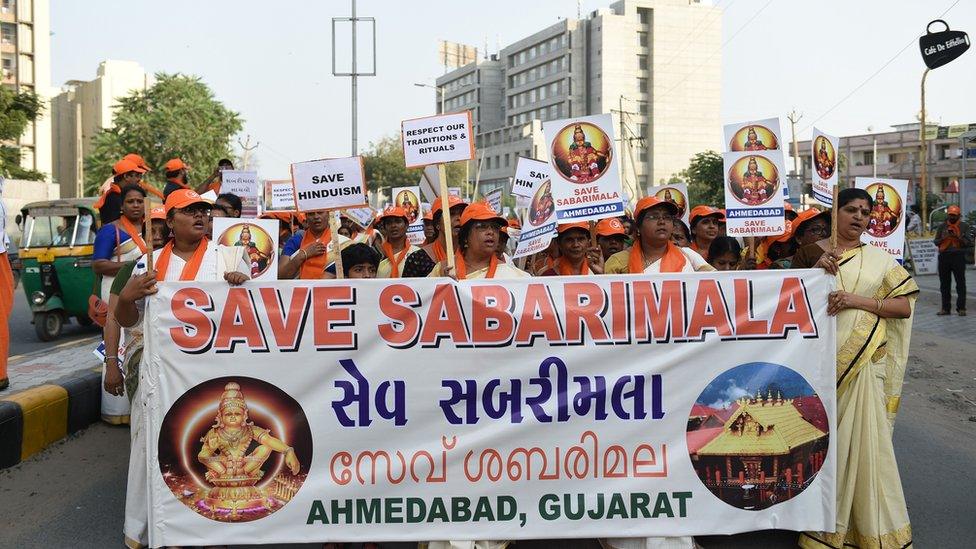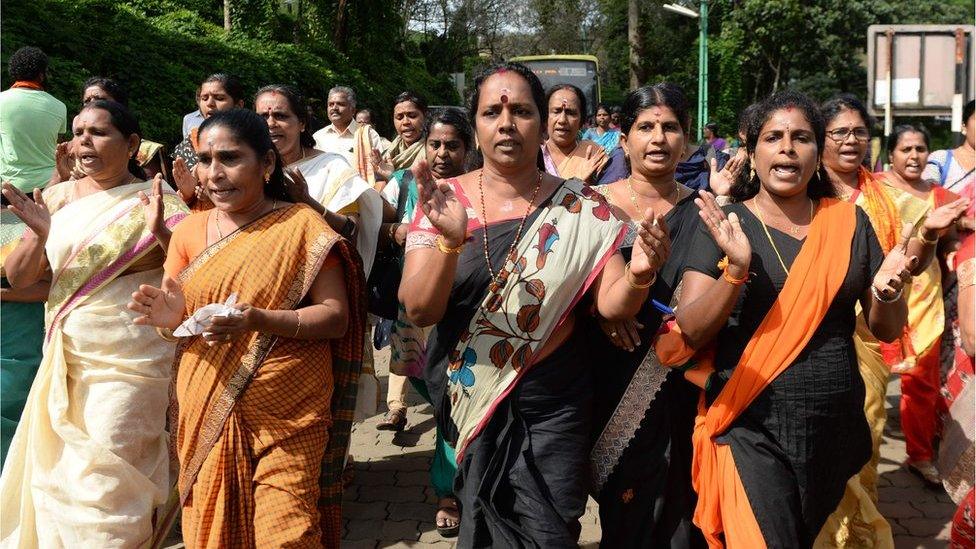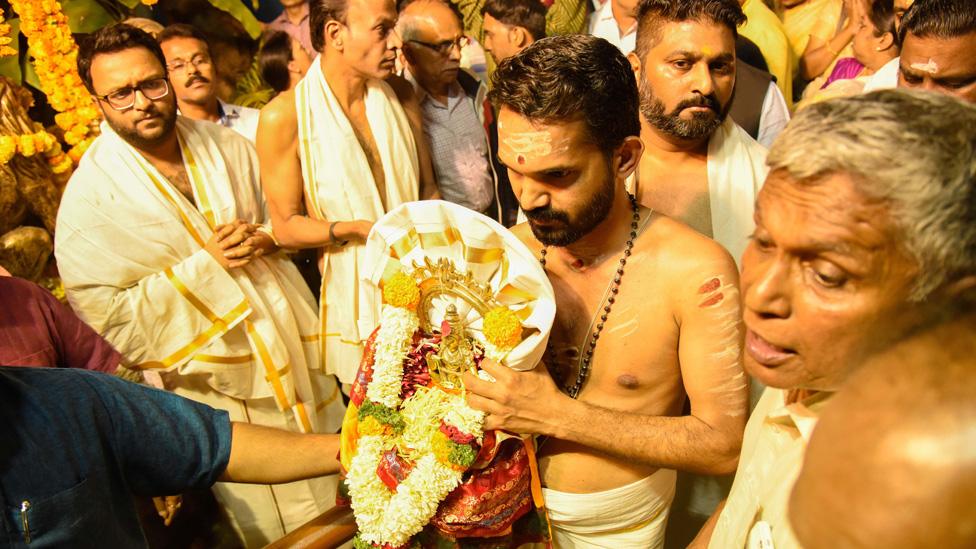Viewpoint: Women's support does not justify regressive tradition
- Published

Devotees participate in a protest against the Supreme Court verdict in the western state of Gujarat
The argument that a ban on women entering India's Sabarimala temple should be re-instated just because some women are supporting it, is a regressive and misleading argument, says historian and social commentator Devika J.
Of the many ironies that have unfolded in the wake of the violence in defence of "custom" at the Sabarimala temple, which traditionally does not allow women aged between 10 and 51 to enter, the cruellest one is about an "elite feminist conspiracy" against the Hindu religion.
But I'm not surprised. The myth that Kerala - the southern Indian state where the temple is located - is a matrilineal society and that women here enjoy freedom and equal rights has been a persistent one.
This myth has continued to circulate despite a rising mountain of evidence against that rosy picture.
There is excellent research that reveals yawning gender gaps in non-conventional indicators of development such as the freedom from domestic and sexual violence, access to independent sources of income, and mental wellness.
For instance, studies show that while education levels have risen in Kerala, domestic violence and demand for dowry have risen alongside that as well. It is also worth noting that only 24.8% of Kerala's women are a part of its workforce. This is despite Kerala having the highest levels of female literacy in India - 92%.
As someone who lives in Kerala, I can vouch that misogyny here is just as toxic as anywhere else in India. The fact that numerically, feminists are relatively few, are nowhere close to power in the state and are constantly under attack is quite well-known.
But critics often cherry-pick facts to suit their arguments. In fact, they have even put out privileged spokeswomen on local television to make their arguments sound more convincing.

Many of the protesters against women entering the temple are women themselves
However the double-standard here is blatant. In this debate, feminists in Kerala and elsewhere who have publicly supported the court verdict have been told they are too "elite" to do so and that their concerns are ultimately too cosmopolitan to represent marginalised women and devotees.
But these spokeswomen, who enjoy immense power and privilege themselves, are somehow seen as having more in common with the local women in Kerala.
But all feminists - elite or not - should oppose the belief that women must be barred from the Sabarimala temple to protect the deity's "celibacy". The claim that the presence of women would invoke the "sexual energy" of male devotees has been made by critics quite publicly.
But isn't the reasoning employed here very similar to the one used to victim-shame survivors of rape and sexual harassment - that their attire or their presence provoked their attacker?
If such a belief is being peddled as tradition, it's important for everyone in a democratic society to strongly oppose it.

Two women are trying to enter the temple in full riot gear
What is worth questioning is why is this particular custom is being defended while so many other regressive practices have been done away with by social reform movements in the early 20th century?
And ultimately, the argument that many women are rallying behind the "tradition" and faith is a classic fallacy.
Never in history did a cause turn virtuous simply because an enormous mob engaged in public display of violence in its defence; neither is there reason to think that a mob full of women is less of a mob. If we look back at the suffrage movement, it may seem striking and surprising now to read about the associations of women who opposed the right to vote in America.
India's Supreme Court has, in recent months, dismantled several regressive colonial-era laws, including repealing a 157-year-old act that criminalised gay sex. In reference to Sabarimala, the same court has raised an important question: If God doesn't discriminate between men and women, why should discrimination exist in temples?
In overturning this ban, the court made clear in its judgement that "the right to practice religion is available to both men and women".
If India's Supreme Court is convinced, why aren't we?
- Published26 October 2018

- Published19 October 2018
